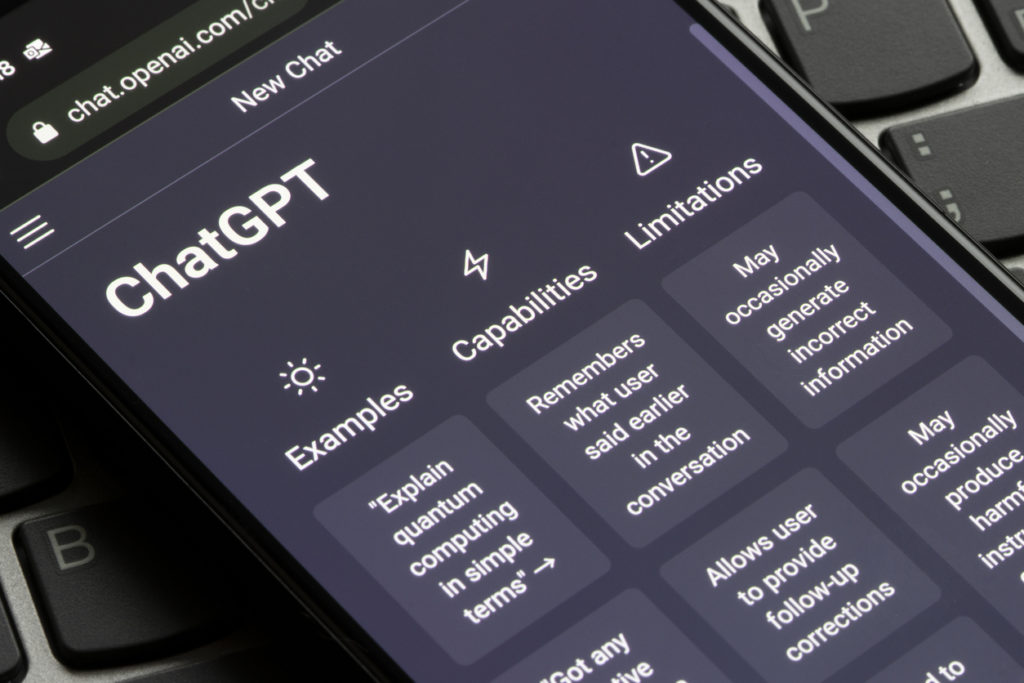- 16 February 2023
- Don Hunton
Rapid unexpected disruption: what ChatGPT teaches us about selling a business.
New AI phenomenon ChatGPT has the potential to be a big disruptor. For business owners, it highlights just how the best laid plans can come undone, and there is no perfect time to sell.
If you’ve ever doubted the ability of humans to not foresee change, then just go and talk to the people at Blockbuster, Kodak or one of the many other industries that has been rapidly displaced by an upcoming competitor.
It’s very easy to see how it happens in retrospect – were people really going to hold onto the nostalgic act of visiting a physical shop for their movies when they could access them in the living rooms without leaving the house? It was ripe for disruption and it’s what the challenger was able to do.
The nature of disruption and how it can impact businesses has been raised again recently by the introduction of artificial intelligence chatbot Chat GPT which burst into headlines late last year.

Sizing up the impacts
At Oasis, we have been speaking with a lot of people about ChatGPT since its launch by OpenAI last November. We have mentioned it to colleagues, clients and other friends in past few days and been surprised that more than half have no idea what we are talking about. Many more had heard of it but not used it.
Despite this, our discussions did yield some interesting feedback. For example, we shared it with a potential client in the tech industry who came back the same day, thanked us and said he had already used it and saw positive results in his report writing speed.
We think it could be a real threat to parts of Google search. This argument has been put forward in several articles such as this one, because why would you continue to filter through pages of Google search results when an AI bot can do it for you?
Of course, there are counter arguments to this which say that with an estimated four billion users a day, Google has such a stronghold that ChatGPT is not up to disrupting it just yet. Plus, Google invests heavily in AI and machine learning and will no doubt directly challenge ChatGPT.
Out of interest, we conducted our own search on Google, ‘current major market disruptions’. The world’s leading search engine told us that there were over 94 million results, but in the first page no mention of ChatGPT. The top hits were from October 22 or older, which tells us something very important: Google is ripe for disruption.
Beyond this, ChatGPT of course has implications for the labour market in general. Don’t panic just yet – some experts predict it’s a long time before it’s likely to be able to solve problems or create prize-winning thinking. Plus, it has plenty of downsides including the potential for plagiarism at schools and universities and the risk of impersonation and fraud.
However, it will act as a catalyst for the AI market – the technology will evolve quickly and spread into new areas which could act as disruptors.
What business owners can learn from disruption
The reasons to discuss ChatGPT are not just to highlight this coming change, but to consider what it means for a business owner. Yes, it may change the way we work in various ways, but just as critically, it highlights how unpredictable the business world is and the ongoing potential for disruption. We’re sure this lesson is already fresh in our minds from the COVID pandemic.
So, as we often tell clients, waiting for the perfect time to sell is not always the best strategy. Delaying too long comes with significant risk of an unexpected occurrence disrupting your business. The often-forgotten reality when deciding to exit or de-risk is that its not a five minute job. A campaign typically will take thirteen months followed by perhaps one to two years earn-out. So, the real question is not, how do I feel today or how is the market today, but how might I feel, and how might the market look in two years-time?
You may be familiar with the concept of VUCA – standing for Vulnerability, Uncertainty, Complexity and Ambiguity – which is often used by the leaders of US Forces. We think many if not all sectors are operating in uncertainty, making it difficult to predict the future. Some might be facing other factors as well, or even all four – volatility, as their industry undergoes rapid change, complexity, as more and more factors influence their operating environment and ambiguity about how new technology might work. This ambiguity in our environment is certainly true as we adopt AI technology when we don’t fully understand the risks or implications.
We’d all be wise to think about this carefully when making business decisions. Or perhaps we can try asking ChatGPT?
References
- ChatGPT gained 1 million users in under a week. Here’s why the AI chatbot is primed to disrupt search as we know it. Fortune, Steve Mollman, December 10 2022 – https://fortune.com/2022/12/09/ai-chatbot-chatgpt-could-disrupt-google-search-engines-business/
- Could ChatGPT challenge Google? Morgan Stanley says the search giant has nothing to worry about. Business Insider, Emilia David, 16 December 2022 – https://www.businessinsider.com/openai-chatgpt-not-likely-to-replace-google-says-morgan-stanley-2022-12
- AI will give office workers more time to ‘create, dream and innovate’ ARF, Paul Smith, January 24 2023 – https://www.afr.com/technology/ai-will-give-office-workers-more-time-to-create-dream-and-innovate-20230124-p5cf2a
- It ‘could be decades’ before ChatGPT knocks out prize-winning thinking AFR, Tess Bennet January 31 2023 https://www.afr.com/technology/it-could-be-decades-before-chatgpt-knocks-out-prize-winning-thinking-20230125-p5cfbl
- What Does VUCA Really Mean? Forbes, Jeroen Kraaijenbrink, December 19 2018-https://www.forbes.com/sites/jeroenkraaijenbrink/2018/12/19/what-does-vuca-really-mean/?sh=4b3e862717d6


